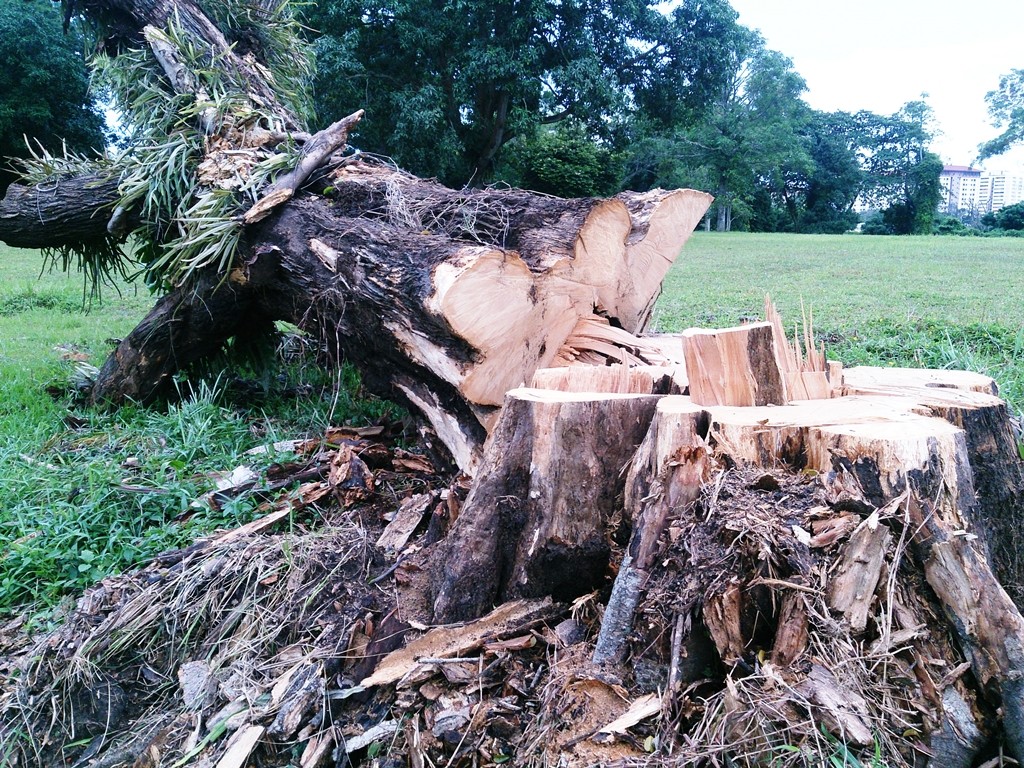At the beginning of 2017, Polish public debate was focused on one specific topic: nature protection. A wave of protests swept through the country, with everyone discussing this problem and both, left-wing and right-wing politicians, were trying to identify adequate solutions. Although the reason for such a situation seemed reasonable for most Poles (owners of private plots have immediately started to cut down trees on their properties), panic followed. Why? Is this nervous behavior of Polish land owners and society justified?
Law on tree removal in Poland has changed significantly in December 2016. The amendment of Nature Protection Act has liberalized previous regulations and since then every private owner of land could cut down a tree or a bush without local authority’s permission. The intention of the legislature was justified – it attempted to strengthen property rights and improve the disposition of private property. Few years ago, Civil Development Forum (FOR) pointed out that the previous rules on trees and bushes removal were too restrictive. Unfortunately, this is the only positive side of the new act.
The changes introduced in December to the law on tree removal (commonly known as “lex Szyszko”, from the surname of the Polish Minister of Environment) are just one example of the pathology in the legislative process deepening under the rule of Law and Justice in Poland. The law was adopted hastily, without consultation or a public debate. In this case, the Law and Justice MPs submitted a project which was prepared first in the Ministry of the Environment. This is a way to avoid public, social and interministerial consultations and submit projects without the due impact assessment.
“Lex Szyszko” was signed by the President (what is the last step of legislative path in Poland) just 21 days after its draft was submitted to the Parliament. In 2016, this whole path for all acts was, on average, 77 days. In comparison, in 2010, before Law and Justice became a ruling party, it took on average 170 days. Rapid law making processes lower the quality of a legislation. The lack of consultations in the case of “lex Szyszko” prevented any debate on tools that would effectively protect trees, which generate significant positive externalities (e.g., in some urban locations), and on ways to compensate private owners of such lots.
This rapid introduction of the amendment immediately resulted in human action. Private owners have started to cut down their “private” trees on the off-chance. They realized that Law and Justice can introduce a new law as quickly as no one before and that after the wave of protests (which has started at the beginning of the year) their policy may change.
The increased number of tree removals in Poland has, in turn, triggered a public debate – opposition politicians and ordinary citizens started to publishing online unverified photos and information related to the locations of the recently removed trees. The abundance of published images, without significant background information about land ownership or legal basis for such an action. Thus, “lex Szyszko” became an example of how easily information can be manipulated in the digital age. The discussions that emerged were dominated by emotions rather than facts. Moreover, the majority of observers forgot about the real problems with ”lex Szyszko” and focused on unverified news.
Both “lex Szyszko” and its further amendment proposed in March (as a result of protests) by Law and Justice unjustifiably discriminate entities and individuals engaged in business activities. Prices of the tree and bush removal for companies have risen, however, this does not apply to farmers. If farmers want to use the land for agricultural purposes, they can freely cut the trees down without any permissions and bureaucracy. There is no justification for privileges just for this group. What is more, the new amendment of “lex Szyszko” prohibits the business activity on a given plot for 5 years after the tree removal. This is clearly discrimination of entrepreneurs. For example, if someone loses a job, he/she will not be able to open e.g. a small grocery on his/her property if any trees had been cut down on this plot in the last 5 years.
”Lex Szyszko” became a symbol of a low-quality, discriminating law, which, however, was based on good intentions. It also became an example of how manipulated information can influence society through the Internet. This case should be a warning for every politician – citizens need a stable and predictable legislature.



